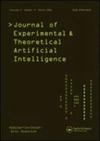将机器学习应用于金属探测器数据的地雷探测和分类
IF 1.7
4区 计算机科学
Q3 COMPUTER SCIENCE, ARTIFICIAL INTELLIGENCE
Journal of Experimental & Theoretical Artificial Intelligence
Pub Date : 2021-03-04
DOI:10.1080/0952813x.2020.1735529
引用次数: 6
摘要
目前的地雷清除方法主要依靠人工使用金属探测器(MDs)和排雷人员的经验来区分由于地雷或无害杂波的存在而发出的声音。这一过程的误报率很高,使排雷工作缓慢而代价高昂。在本文中,我们报告了我们在排雷过程中使用机器学习进行决策的尝试。我们已经创建了自己的地雷和/或杂波对应的MD响应数据库。设计并组装了一个机器人轨道来精确测量这些响应并建立数据库。然后使用数据库开发了几个机器学习模型,目的是检测地雷的存在并对其进行分类。结果表明,该分类算法能够根据金属探测器传送的数据或特征准确地识别地雷,并区分不同的埋设物,包括地雷或其他物品。本文章由计算机程序翻译,如有差异,请以英文原文为准。
Detection and classification of landmines using machine learning applied to metal detector data
ABSTRACT The current landmine clearance methods mostly rely on the manual use of metal detectors (MDs) and on the deminer’s experience in differentiating between the sounds emitted due to the presence of a landmine or of harmless clutter. This process suffers from high false-alarm rates, which renders the demining effort slow and costly. In this paper, we report our attempts in using machine learning for decision making in the demining process. We have created our own database of the MD responses corresponding to landmines and/or clutter. A robotic rail is designed and assembled to accurately measure these responses and build the database. Several machine learning models are then developed using the database with the aim of detecting the presence of landmines and classifying them. It is shown that the classification algorithms lead to accurately discriminating the landmines and distinguishing between different buried objects including mines or other items based on the metal detector delivered data or signature.
求助全文
通过发布文献求助,成功后即可免费获取论文全文。
去求助
来源期刊
CiteScore
6.10
自引率
4.50%
发文量
89
审稿时长
>12 weeks
期刊介绍:
Journal of Experimental & Theoretical Artificial Intelligence (JETAI) is a world leading journal dedicated to publishing high quality, rigorously reviewed, original papers in artificial intelligence (AI) research.
The journal features work in all subfields of AI research and accepts both theoretical and applied research. Topics covered include, but are not limited to, the following:
• cognitive science
• games
• learning
• knowledge representation
• memory and neural system modelling
• perception
• problem-solving

 求助内容:
求助内容: 应助结果提醒方式:
应助结果提醒方式:


